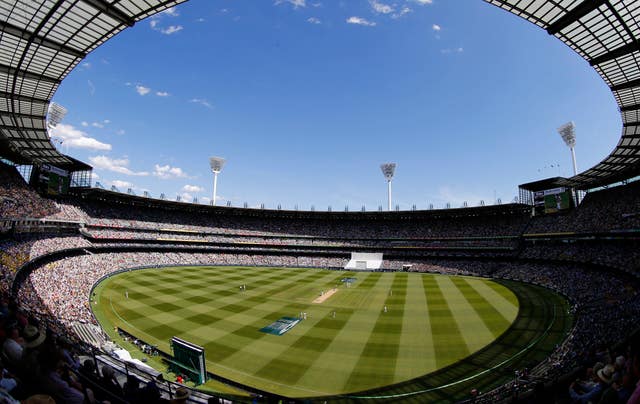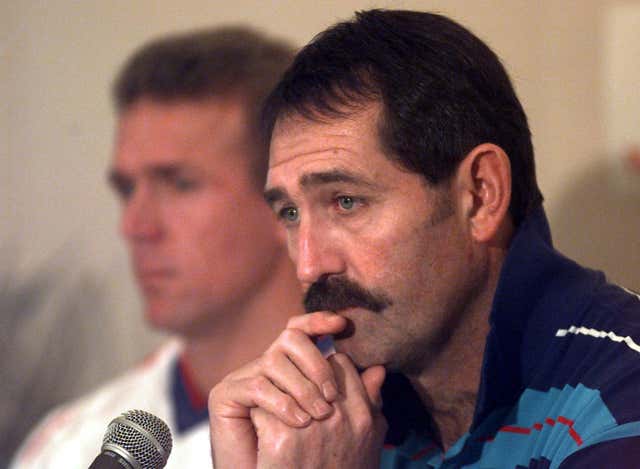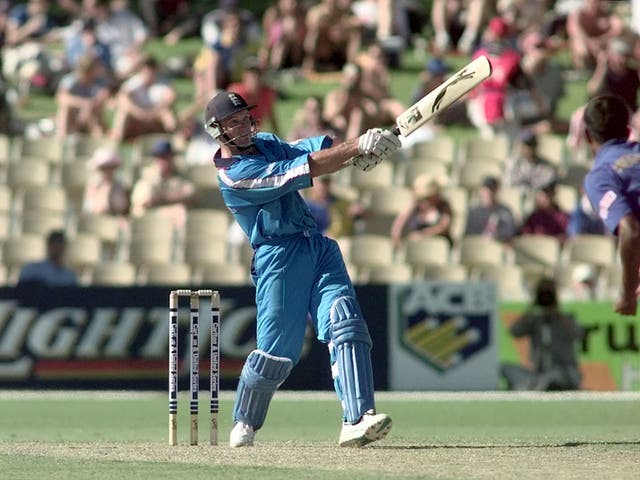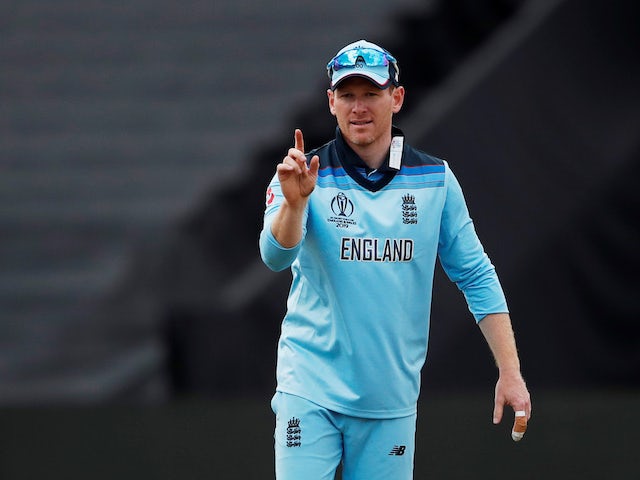England have reached the semi-finals of the Cricket World Cup for the first time since 1992.
Eoin Morgan's men face Australia at Lord's, bidding to match their achievement of 27 years ago when they made it through to the final for the second successive tournament, only to be beaten by Pakistan.
Here, PA takes a look back at that tournament and how England made it to the final.
Backdrop to the tournament

It was the first time the World Cup had been held in Australasia, and indeed the Southern Hemisphere, as Australia and New Zealand co-hosted the tournament with the final being held at the Melbourne Cricket Ground.
South Africa made their World Cup debut, returning to international cricket after the end of apartheid, with the draw amended to accommodate their inclusion.
The format was also new, as a round-robin system was introduced – just as it has been this year – replacing the previous group stage format.
Who was in the England team?

England boasted an experienced squad, skippered by 38-year-old Graham Gooch and spearheaded by the likes of all-rounder Ian Botham, 36, and wicket-keeper batsman Alec Stewart, 28. A number of the squad were also part of the group that reached the final in 1987.
Botham would prove to be England's key man with the ball, claiming 16 wickets in the competition – two shy of Wasim Akram's tally of 18 – while Neil Fairbrother was England's highest run-scorer with 285.
Route to the final
England lost their final two matches in the round-robin stage, but five wins and a no result from their first six matches was enough to see Gooch's men ease into the final four.
They were well beaten by eventual table-toppers New Zealand in Wellington before slipping to a nine-run loss against Zimbabwe to finish second.
Semi-final

That booked England a semi-final meeting with debutants South Africa at the Sydney Cricket Ground.
It was a match marred by controversy. Graeme Hick's 83 from 90 balls had guided England to a total of 252 for six from their 45 overs in a rain-affected clash.
In their chase, South Africa got their required target down to 22 needed from 13 balls when the rain began to fall again. This was a time before the Duckworth-Lewis method was adopted in international cricket and the 'rain rule' caused much confusion.
Inexplicably, when play resumed South Africa now required 22 runs from seven balls – a near impossible task – as England progressed to the final with a 19-run victory.
Final
#OnThisDay in 1992, Pakistan won the @cricketworldcup 🏆 ! @ImranKhanPTI led Pakistan 🇵🇰 to a 22 run win over England in the final at the @MCG 🏟. pic.twitter.com/zLa7uWSP7O
— Pakistan Cricket (@TheRealPCB) March 25, 2019
Despite their controversial semi-final win, England had played some of the best cricket of the tournament and were firm favourites heading into the final against Pakistan.
Gooch's men got off to a strong start, as Derek Pringle removed Pakistan's openers Aamer Sohail and Ramiz Raja with just 24 runs on the board. Pringle would finish with three for 22 from his 10 overs but Pakistan recovered well as Imran Khan and Javed Miandad – the second highest run-scorer in the tournament – scored 72 and 58 respectively.
England would not have been daunted by a target of 250 to win the World Cup, but Pakistan's star men rose to the occasion. Wasim Akram removed Botham for a duck, with Stewart, Hick and Gooch all following soon after.
Fairbrother led the recovery from 69 for four with a superb 62, but England lost wickets frequently, Akram and Mushtaq Ahmed claiming three apiece.
Imran Khan – now Prime Minister of Pakistan – dismissed Richard Illingworth to seal their first World Cup.
What is the tournament remembered for?
👕 Coloured kits ⚾️ White balls💡 Floodlit games #OnThisDay in 1992, the fifth edition of the ICC Men's Cricket World Cup got underway!
What's your favourite memory of the tournament? pic.twitter.com/kDIoAQR047
— Cricket World Cup (@cricketworldcup) February 22, 2019
Many regard 1992 as the first modern Cricket World Cup, one that set the game on the path to the white-ball cricket we know today.
It was the first to feature day/night cricket, white balls and also coloured clothing.
There were also a number of tactical innovations used in 1992 that had not been previously adopted in the one-day game.
New Zealand in particular succeeded with a variety of unconventional methods. They opened the bowling with spinner Dipak Patel rather than the usual seam opener and also deployed a 'pinch-hitter' to open the batting – a tactic which was carried on to great effect four years later, as Sri Lanka shocked the world to lift the trophy.
Shades of 1992
England go retro! 👌
Shades of 1992 in 2019 kit! Will they make the final again? pic.twitter.com/b5WoeW5taf
— Cricket World Cup (@cricketworldcup) May 21, 2019
England have not shied away from their desire to emulate the team of 1992 and make it through to the final at Lord's.
Right from the start of this campaign, the comparison was clear as England launched their powder blue kit for the tournament, which was based on their iconic outfit from 1992.
It was a bold statement by a side who entered the tournament as favourites to clinch their first World Cup crown in 2019.
Victory over Australia would see them match the achievements of 1992, but Morgan and his side will be determined to go one step better.
ga('create', 'UA-72310761-1', 'auto', {'name': 'pacontentapi'});
ga('pacontentapi.set', 'referrer', location.origin);
ga('pacontentapi.set', 'dimension1', 'By Scott Hunt, PA');
ga('pacontentapi.set', 'dimension2', 'da94042d-8f1f-4d18-aaad-498471e27413');
ga('pacontentapi.set', 'dimension3', 'paservice:sport,paservice:sport:uk');
ga('pacontentapi.set', 'dimension6', 'story');
ga('pacontentapi.set', 'dimension7', 'composite');
ga('pacontentapi.set', 'dimension8', null);
ga('pacontentapi.set', 'dimension9', 'sport:cricket');
ga('pacontentapi.send', 'pageview', { 'location': location.href, 'page': (location.pathname + location.search + location.hash), 'title': 'A look at England\u2019s 1992 World Cup run'});









